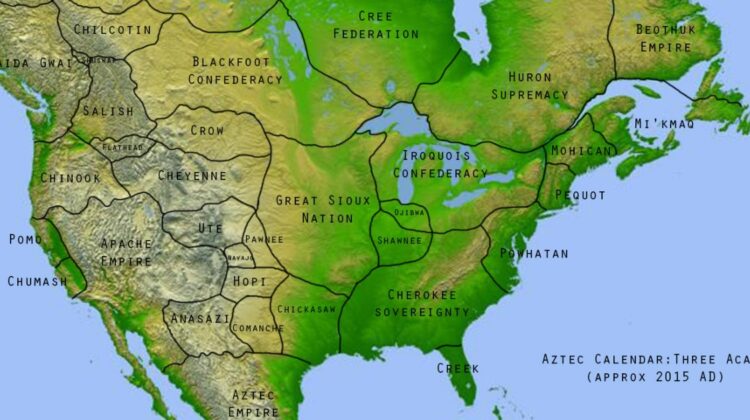
Have you ever pondered the potential alternate reality of an America untouched by European colonization? A Reddit user, fueled by curiosity, embarked on a creative endeavor to envision a map of the continent as it might have appeared if Indigenous nations had been left to shape its destiny.
The map, originally shared on the “Imaginary Maps” subreddit in July 2015 by Redditor liminalsoup, captivates the imagination with its depiction of an America devoid of European influence. While some initially believed it illustrated the Native American tribal areas prior to colonization, fact-checkers, including Snopes, clarified that this notion was inaccurate.
The map serves as a product of speculative fiction, embodying one author’s compelling vision of how America might have evolved culturally, politically, and historically without the impact of European exploration and colonization. It’s crucial to recognize that this creative endeavor does not aim for accuracy or realism but instead invites viewers to explore an alternative timeline rooted in imagination.

The speculative borders presented in the map do not consider potential interactions between Indigenous nations and other global regions like Asia, Africa, or Oceania. Furthermore, they oversimplify the intricate diversity of Indigenous cultures and languages that flourished before the arrival of European settlers.
This imaginative map has stirred considerable discussion and debate online, with some applauding its originality and the opportunity it provides for contemplation. However, critics have surfaced, pointing out inaccuracies and highlighting the complexities oversimplified in this fictional exercise.
In a parallel exploration of this intriguing concept, the YouTube channel “What If” delves into the question: What would America’s borders look like if Christopher Columbus had never discovered it? This video provides an additional perspective on the hypothetical scenarios surrounding the uncharted destiny of the American continent.
In the end, these creative endeavors, be it through maps or videos, prompt us to reflect on the profound impact of historical events and the intricate tapestry of cultures that could have thrived in the absence of European influence. While rooted in fiction, they spark meaningful conversations about the legacies of colonization and the resilience of Indigenous peoples in shaping the narrative of their own lands.

Leave a Reply